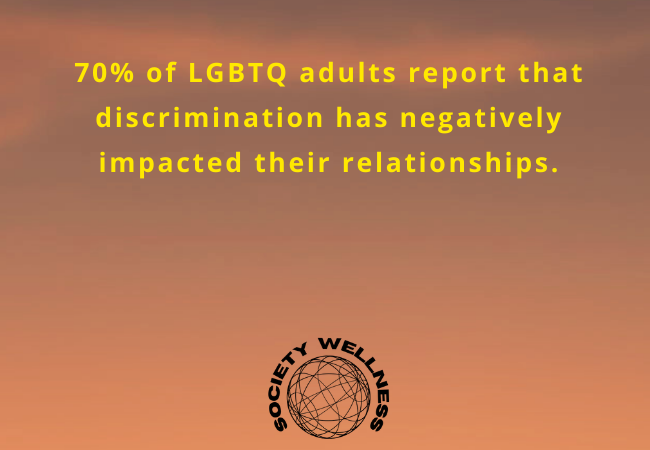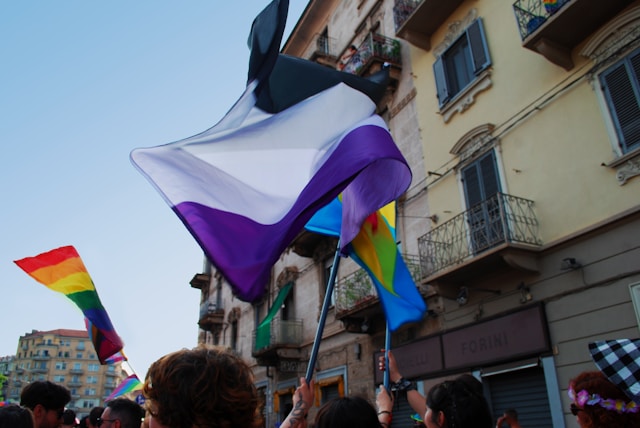Conflict is a natural part of any relationship — it’s not whether you argue, but how you work through disagreements that determines the health and longevity of your partnership. For LGBTQ couples, conflicts are often magnified by unique external stressors and internal dynamics that deserve compassionate understanding and specialized support.
That’s where LGBTQ couples therapy Massachusetts comes in. At LGBTQ Behavioral Health Center Massachusetts, we understand the layered complexities that LGBTQ couples face. Through LGBTQ couples counseling Massachusetts, queer affirmative therapy Massachusetts, and integrated care like our LGBTQ Partial Hospitalization Program Massachusetts and LGBTQ Intensive Outpatient Program Massachusetts, we equip couples with tailored tools to navigate conflict with empathy, clarity, and connection.
In this in-depth guide, we explore how LGBTQ couples therapy helps resolve conflicts constructively, strengthens relationships, and fosters long-term emotional intimacy.
Understanding Conflict in LGBTQ Relationships
Before exploring solutions, it’s essential to acknowledge the unique landscape of conflict within LGBTQ relationships.
External Stress Amplifiers
- Societal discrimination and microaggressions can lead to frustration and feelings of helplessness, sometimes displaced onto a partner.
- Family rejection can intensify feelings of isolation, causing partners to overly rely on each other for emotional needs — increasing the stakes of every disagreement.
- Minority stress, including the fear of judgment or misunderstanding from outside the relationship, can compound emotional strain.
These external factors don’t just live outside your front door — they come home with you and impact how you communicate and resolve disagreements.
Internal Dynamics
- Trauma histories related to identity, coming out, or past relationships can make vulnerability feel risky during conflict.
- Identity evolution within a relationship — such as one or both partners exploring gender or sexual orientation — can create uncertainty and misunderstanding.
- Communication styles shaped by upbringing or cultural background can lead to unintentional clashes.
Through queer affirmative counselling Massachusetts, couples work with therapists who recognize these factors and help you navigate them safely.
How LGBTQ Couples Therapy Massachusetts Helps Resolve Conflict
1. Establishing an Affirming, Non-Judgmental Environment
The first step in resolving conflict is feeling safe to express your emotions honestly. At LGBTQ Behavioral Health Center Massachusetts, our therapists create a safe space for couples to:
- Share frustrations without fear of judgment
- Explore vulnerabilities around conflict
- Express feelings about identity, external pressures, and relational needs
Using queer affirmative therapy Massachusetts, we ensure your relationship is honored and affirmed in every session.
2. Understanding Conflict Triggers
Every couple has unique emotional triggers, especially LGBTQ partners managing societal or family pressures. In therapy, you’ll learn to:
- Identify personal and shared triggers
- Understand how external stress affects internal conflict
- Develop strategies to anticipate and navigate emotional reactions
By recognizing triggers early, you can prevent escalation and foster a more compassionate environment.
3. Learning Communication Techniques for De-escalation
In heated moments, communication often breaks down. Our therapists teach couples effective strategies such as:
- Active listening: Fully concentrating, understanding, and responding to your partner with empathy.
- Reflective feedback: Repeating back what your partner shares to ensure clarity and understanding.
- Using “I” statements: Expressing feelings from your own perspective to prevent blame.
- Timed pauses: Taking a moment to breathe and regulate emotions before responding.
These tools help turn arguments into productive conversations, preserving connection even during disagreements.
4. Rebuilding Trust Post-Conflict
Conflict, especially unresolved, can erode trust over time. LGBTQ couples counseling Massachusetts focuses on:
- Rebuilding emotional security after arguments
- Establishing rituals of repair (like regular check-ins or restorative conversations)
- Encouraging vulnerability and mutual reassurance
Trust isn’t rebuilt overnight, but with intentional effort and affirming support, couples can grow stronger after conflict.
5. Managing External Stressors as a Team
Through LGBTQ therapy Massachusetts, couples learn to shift from partner vs. partner to partners vs. the problem. This mindset transforms external stress from a divisive force into an opportunity for teamwork.
Therapy includes:
- Creating shared coping strategies for discrimination or family rejection
- Developing resilience as a united front
- Strengthening emotional boundaries against external negativity
By facing the world together, your relationship becomes a source of shared strength.
6. Integrating Holistic Care for Deeper Healing
For couples managing deeper personal struggles like anxiety, trauma, or depression, integrated support is vital. At LGBTQ Behavioral Health Center Massachusetts, we offer:
LGBTQ Partial Hospitalization Program Massachusetts (PHP): Intensive therapeutic support for individuals and couples navigating mental health challenges.
LGBTQ Intensive Outpatient Program Massachusetts (IOP): Flexible, structured care that balances therapy with daily life responsibilities.
By combining individual healing with relationship work, couples create a stronger, healthier foundation for conflict resolution.
7. Cultivating Forgiveness and Moving Forward
Conflict resolution isn’t just about solving the problem — it’s about healing the relationship. Therapy guides couples in:
- Practicing forgiveness (of each other and of themselves)
- Letting go of resentment while honoring past pain
- Focusing on shared future goals and dreams
Forgiveness isn’t forgetting; it’s choosing to move forward with wisdom and compassion.

Using Conflict as a Catalyst for Growth
Many couples view conflict as a threat — but in therapy, it becomes an opportunity for:
-
Deeper emotional intimacy: Conflict often reveals what truly matters to each partner
-
Stronger emotional regulation: You learn to stay grounded, even when emotions run high
-
Refined boundaries: Healthy conflict teaches you what’s okay and what needs to change
-
Shared goal setting: Resolving conflict helps couples align values and future direction
Navigating Intersectionality During Conflict
For many LGBTQ couples, conflict is shaped not only by sexual and gender identity, but also by race, class, disability, religion, and culture.
Our therapists are trained in intersectional approaches, helping couples:
-
Explore how systemic oppression or cultural trauma impacts their relational habits
-
Understand privilege, power dynamics, and communication differences within the couple
-
Cultivate empathy and mutual respect for each other’s full lived experiences
Conflict resolution in this context isn’t just about compromise — it’s about creating a deeply equitable relationship rooted in understanding.
Why Choose LGBTQ Behavioral Health Center Massachusetts?
At LGBTQ Behavioral Health Center Massachusetts, we understand that LGBTQ relationships require not just general therapy but care that is deeply rooted in affirmation, understanding, and cultural competency.
When you work with us, you receive:
LGBTQ-Affirming Therapists Who Truly Understand
Our experienced team provides culturally responsive, affirming care tailored to the unique dynamics of LGBTQ relationships.
Specialized Queer Affirmative Counselling Massachusetts
We don’t just tolerate your identities — we celebrate them, ensuring your relationship is nurtured in every way.
Comprehensive, Integrated Care (PHP & IOP)
We address both relational and individual challenges through our LGBTQ Partial Hospitalization Program Massachusetts and LGBTQ Intensive Outpatient Program Massachusetts.
Safe, Confidential Environment
Your story is yours to tell. We provide a respectful, private space where you and your partner can grow without fear of judgment.
Personalized Conflict Resolution Tools and Techniques
No two relationships are the same. We equip you with custom strategies to resolve conflict in ways that work for you.
At LGBTQ Behavioral Health Center Massachusetts, we don’t just help couples survive conflict — we help them thrive beyond it.
Conclusion
Conflict doesn’t have to mean disconnection. In fact, when approached with care, honesty, and the right tools, conflict becomes an opportunity to understand each other more deeply and grow closer.
Through LGBTQ couples therapy Massachusetts, you and your partner can transform conflict into connection, strengthen your communication, and build a relationship rooted in resilience and love.
Ready to heal and grow together? Call us today at 888.964.8116. Let LGBTQ Behavioral Health Center Massachusetts guide you toward healthier conflict resolution, deeper understanding, and a stronger, more connected future. Your love deserves it. Your story deserves it. And together, we can create a future where your relationship thrives — no matter what challenges arise.
FAQ on LGBTQ Couples Therapy
How does LGBTQ couples therapy Massachusetts help with conflict resolution?
LGBTQ couples therapy Massachusetts provides affirming strategies to improve communication, rebuild trust, and navigate relationship conflicts with empathy and skill.
What makes queer affirmative therapy Massachusetts effective for LGBTQ couples?
Queer affirmative therapy Massachusetts centers LGBTQ experiences, offering culturally competent tools for healing and conflict resolution that respect each partner’s identity.
Can therapy help if our conflicts are caused by external stress?
Absolutely. LGBTQ couples counseling Massachusetts helps couples understand how external stressors like discrimination and family rejection impact conflict, and teaches tools to manage them together.
Do you offer support for individual mental health challenges alongside couples therapy?
Yes! Our integrated programs, including LGBTQ Partial Hospitalization Program Massachusetts and LGBTQ Intensive Outpatient Program Massachusetts, support both individual and relational wellness.

